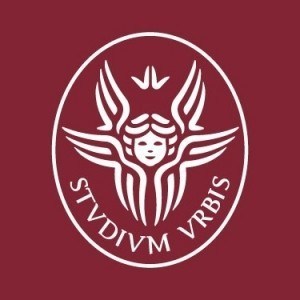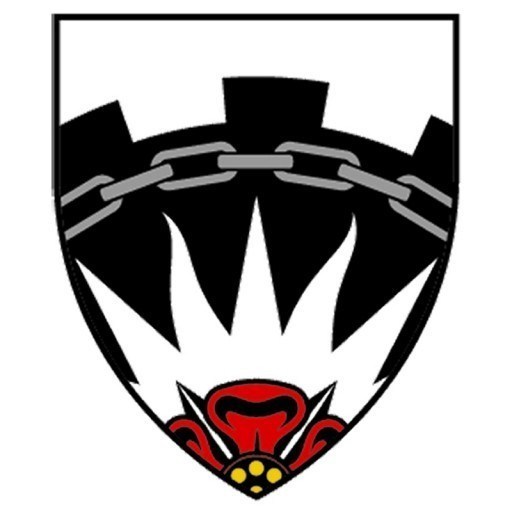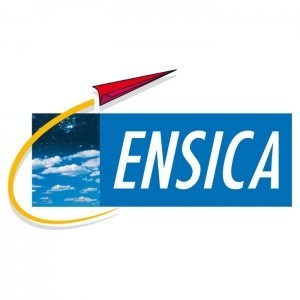Photos of university / #imperialcollege
Catalysis: Chemistry and Engineering at Imperial College London is a comprehensive postgraduate programme designed to prepare students for advanced careers in the field of catalysis, chemical engineering, and related industries. This MSc programme is ideal for individuals seeking to deepen their understanding of catalytic processes, material properties, reaction mechanisms, and their applications in sustainable energy production, environmental protection, and chemical manufacturing. The curriculum integrates fundamental principles of chemistry and chemical engineering, emphasizing the design, development, and optimization of catalytic processes to improve efficiency and environmental performance. Students will explore topics such as heterogeneous and homogeneous catalysis, catalysis materials, reaction engineering, process design, and sustainability considerations in chemical processes. The programme combines rigorous theoretical coursework with practical laboratory work, allowing students to gain hands-on experience in catalyst synthesis, characterization, and testing. Collaboration with industry partners provides real-world insights and opportunities for internships or project work, enhancing employability upon graduation. The teaching faculty comprises world-renowned experts in catalysis, chemical engineering, and materials science, ensuring a high-quality educational experience grounded in the latest research and technological advancements. The interdisciplinary nature of the programme enables graduates to pursue careers in research and development, process engineering, consultancy, and roles within industries such as petrochemicals, pharmaceuticals, environmental technology, and renewable energy. The programme aims to develop not only technical expertise but also critical thinking, problem-solving, and innovative skills necessary for leading projects and advancing sustainable chemical processes. Graduates will leave with a strong foundational knowledge of catalytic systems and the ability to apply this knowledge practically in industrial contexts. The programme is typically completed within one year for full-time students, with options for part-time study available. Successful completion results in an MSc degree, opening pathways to PhD research or careers in industry, academia, and consultancy sectors, contributing to the development of cleaner, more efficient, and sustainable chemical technologies worldwide.
The programme is only offered as a full-time, one-year course and leads to the MRes degree. Students begin their lecture programme with core courses spanning the first term (OctoberDecember) and second term (January-March). The taught courses are assessed by exams in January and May. In the second term students also participate in Journal Clubs. In October students choose a 9-month (December-August) multidisciplinary research project. They present a research proposal on the topic of their research in late November and a dissertation and oral presentation in September. In mid-September, a viva is held on the research topic.
Year One:
Term one: Students choose a research project from a list of one-page abstracts (typically around 40) after discussion with academic staff during the first two weeks of the course. Each research project has two supervisors, each from different academic disciplines (typically one from chemistry and one from engineering or materials). Under the guidance of their supervisors, students write a research proposal for submission at the end of term. Students begin their taught lecture programme in this term, which cover both core and optional topics. In total, the students cover 4 core topics (equivalent to 5 courses in length as one counts double) and 2 optional topics. The core topic taught in this term is: • Catalytic reaction engineering with selected lectures (24 in total) from: CE2-04-02 Reaction engineering I (Dr Marcos Millan-Agorio), CE3-02 Reaction Engineering II (Dr Clemens Brechtelsbauer), CE4-20 Pharmaceutical process development (Dr Andreas Kogelbauer, Dr Clemens Brechtelsbauer, Dr Frantisek Stepanek, Mr Richard Escott). This course will count double the credit of the chemistry course and will continue into Term Two. The optional topics are: • 4.I5 Modern applications of inorganic chemistry in industry - 8 lectures, chemical industry staff, organised by Dr Mimi Hii • 4.I10 Green chemistry - 10 lectures, Prof. Charlotte Williams
Term Two: The students continue their lecture courses with the core courses: • 4.18 Palladium catalysis in organic synthesis - 8 lectures, Dr Mimi Hii • 4.O10 Catalytic asymmetric synthesis – 8 lectures, Dr. Chris Cordier and Dr Jordi Burés • 4.O23 The kinetics of catalysis - 8 lectures, Dr Jordi Burés Four further optional courses are also available for the students to take: 4.I11 Green solvents - 8 lectures, Prof. Tom Welton (examined by essay – not under exam conditions) 4.I6 Ultrasound and microwaves for chemical synthesis - 8 lectures, Dr Lickiss 4.I7 Inorganic chemistry with computers not chemicals - 8 lectures, Dr Tricia Hunt 3.I3 Inorganic mechanisms and catalysis – 9 lectures, Dr George Britovsek In February and March, the students take part in two Journal Club sessions in which the critically evaluate key publications related to topical catalysis. This is an assessed transferable skills course, which aims to develop presentation skills, whilst encouraging scientific debate, and providing the opportunity to broaden scientific knowledge. At each meeting students will work together in a group and make a presentation about a seminal high impact paper. This will be followed by a chaired discussion/debate about the paper. Students are assessed on their ability to organise the presentation in a logical manner, the use of clear power-point slides, the clarity of the presentation and its scientific content. The students also begin their research project in the laboratory of their supervisors in December.
Term Three: Students present their research findings at a one-day MRes Oral Presentation day held in midSeptember. The research projects will be finished and the MRes Dissertation will be handed in beginning of September. Project assessment is based on a written MRes Dissertation, performance in the Oral Presentation and in the viva held in the presence of the supervisors and an External Assessor(s). These External Assessors will be academics from other institutions or industrialists working in the area of catalysis. Both the Oral Presentations and viva will take place a few days before the MRes Examination Board meeting.
Academic requirement: 2:1 degree or higher in Chemistry, Engineering or related subject. A modest level of background chemistry or engineering knowledge is assumed.
English requirement: IELTS 6.5 (writing and speaking 6).
The financing of the Catalysis: Chemistry and Engineering program at Imperial College London is primarily through a combination of tuition fees, scholarships, and funding opportunities available to both domestic and international students. Prospective students are encouraged to explore various sources of financial support to assist with their studies. Tuition fees for this program vary depending on the student’s domicile status, with international students typically facing higher fees compared to UK domestic students. The college offers a range of scholarships and bursaries designed to support outstanding students, including departmental awards, excellence scholarships, and external funding opportunities. These scholarships often cover partial or full tuition fees and may include living expenses support.
Students can also apply for government-funded loans, such as those from the UK Student Loans Company, which provide financial assistance for tuition fees and maintenance costs. For international students, scholarship programs are often provided by external organizations, governmental agencies, or industry partners interested in fostering expertise in catalysis and sustainable energy solutions. Imperial College London also has partnerships with industrial companies, which may offer sponsorship or internship schemes that include financial support or stipends during the course of study. Additionally, students are encouraged to seek out research grants or teaching assistant positions within the college, which can provide supplementary income and valuable research experience.
It is important for applicants to carefully review the eligibility criteria, application deadlines, and specific terms of each funding scheme. Financial planning should be undertaken early in the application process to ensure that students can fully take advantage of available opportunities. The college’s admissions and student finance offices provide comprehensive guidance and updated information about current funding options, application procedures, and deadlines. Overall, the program's financing is structured to support talented students who wish to contribute to advancements in catalysis, chemistry, and engineering, aligning financial support with the university’s commitment to excellence and inclusivity in science and engineering education.
Tuition fees (2015–2016):
- Home/EU Full-time — £10,450
- Overseas Full-time — £29,300





